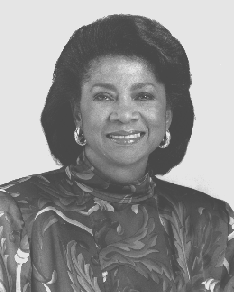Page 65
[Begin Tape 1, Side A]
Biagi: Let's talk about June 1968 and Robert Kennedy and move forward from there today. What do you remember about that time, and how involved were you at all in that event?
Davis: I wasn't involved at all, except as a reporter, except to cover the local reaction, and we all did that. Everybody in every major city in America, I'm sure, did that. But I think because of the fact that it happened in California and he'd been in the Bay Area just days before the event, we all felt very personal about his murder, and sort of felt that heroes didn't have much of a chance, if you indeed considered him a hero, which most of us growing up with my background in this area, we certainly felt.
Biagi: So your reaction, then, to Bobby Kennedy's assassination?
Davis: It really was a melancholia. When that happened, I can remember exactly where I was when John Kennedy was shot, exactly where I was when I found out that Martin Luther King [Jr.] had been shot, and now this. It was like the third strike, and do you go back to the plate again? Is it really a new ball game, or how do you go from here? So it took a little while to focus, and I was not alone in that. Many people felt that way.
Biagi: As a reporter, your job was to cover Bay Area reaction, that kind of thing?
Davis: Yes, but it was more a melancholia, I think, for the country that this was the way that we as a nation were solving our problems, and if that was our choice, then what was this other stuff about, our belief in democracy and using the democratic process to create change? So no matter where you place yourself publicly as a conduit of information, you have your background to carry with you all the time. Being a black American, my hope had to be in the fact that the system works, and whatever happened to diminish that then diminishes the possibility for my children for the future and so on. So I think it was probably not thought out that well, but that was a contributing factor. So while I realized my job was to report the facts and other people's reaction, there was this background going on inside of me. Of course, the antiwar demonstrations continued.
Biagi: Which you covered quite a bit.
Davis: A lot. An awful lot. They became more and more hostile. The action and reaction of those in authority to people who were protesting became more vigorous. Hard lines were being drawn. Loyalty to country was always the top of the list, depending on, of course, what group you're talking to. So there was all of that going on. Then just the issue of race in all of this continued.
Biagi: Where was the issue of race, would you say, at this time? How was it being addressed?

